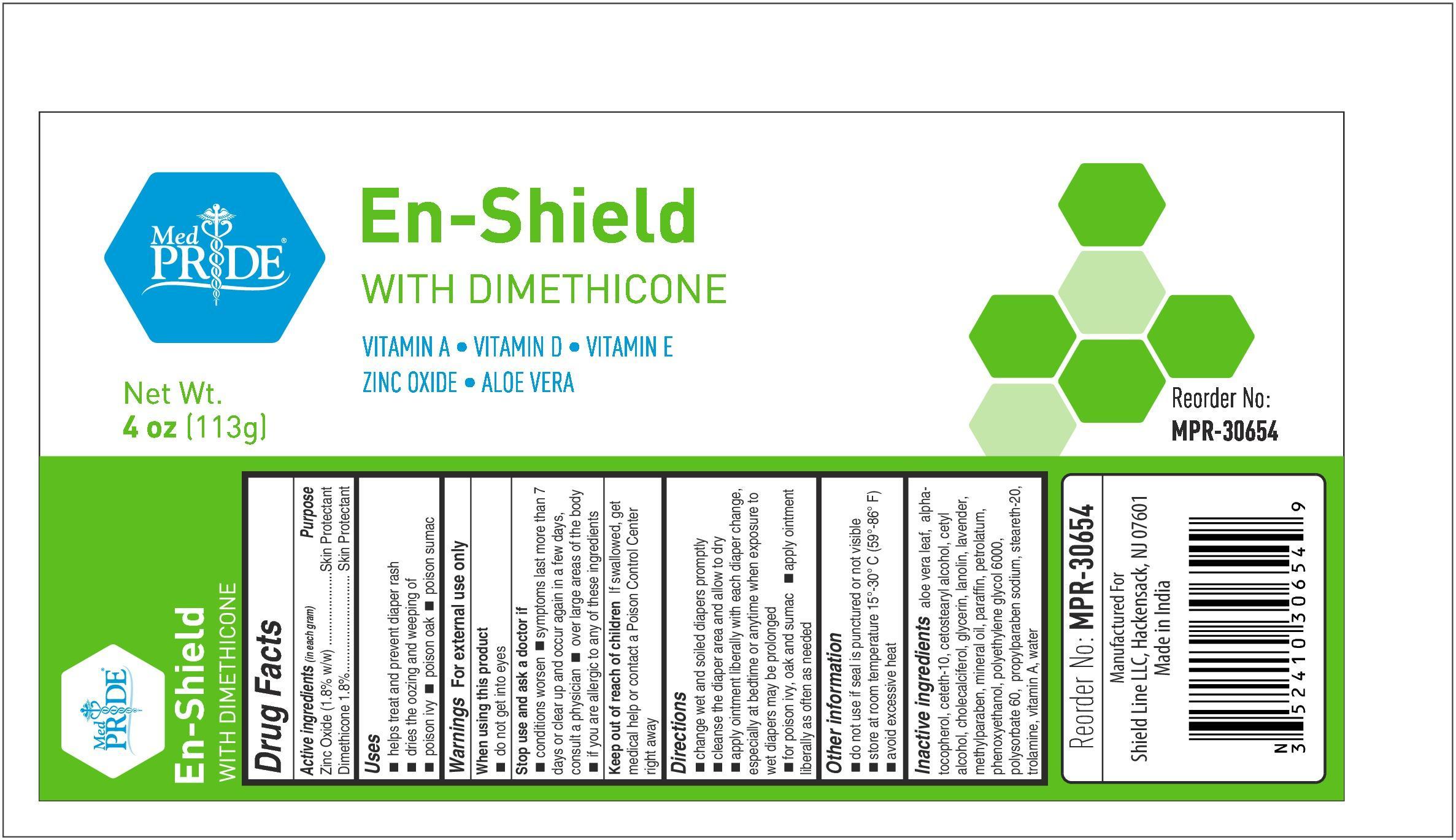Medpride En Shield | Zinc Oxide Dimethicone Cream while Breastfeeding

What is Medpride En Shield | Zinc Oxide Dimethicone Cream used for?
Brief: Skin Protectant Skin Protectant
Is using Medpride En Shield | Zinc Oxide Dimethicone Cream unsafe in breastfeeding? Can there be bad consequences for baby if I use it while breastfeeding?

Medpride En Shield | Zinc Oxide Dimethicone Cream Breastfeeding Analsys
Zinc cation while Breastfeeding
SafeCAS Number: 1314-13-2
It is used topically as an astringent and skin protector, very often together with small amounts of Ferric Oxide to form Calamine (see specific info). It is a product compatible with breastfeeding according to WHO Essential Medicine’s List - 2002.It is also used in dental hygiene products and cosmetics. Widely used for skin protection of the diaper area in infants. Because of the small dose used and poor absorption into plasma of most topical dermatological preparations, excretion into breastmilk in significant amount appears to be unlikely. Do not apply on the breast to prevent infant ingestion; otherwise, wash it off thoroughly with water before the next breast feed.
Dimethicone while Breastfeeding
SafeCAS Number: 9006-65-9
Dimethicone is a fluid type of silicone with a methyl as organic group radical. Silicones are polymers of silicon tied to oxygen atoms with high molecular weight (see information on silicone and dimethicone). Dimethicone is water repellent and it is used in creams, dressings for skin protection and pediculicides. An activated form of Dimethicone is Simethicone that is used for treatment of flatulence (see info on Simethicone) At latest update, relevant published data on excretion into breast milk were not found. Because it is not absorbed through the skin or orally along with a high molecular weight, excretion into breast milk in significant amount or absorption by the infant gut is highly unlikely. See below the information of these related products:
What if I already have used Medpride En Shield | Zinc Oxide Dimethicone Cream?
It is always a good idea to keep your healthcare provider or doctor informed about your drug usage during pregnancy and breastfeeding but if you have not informed your doctor about Medpride En Shield | Zinc Oxide Dimethicone Cream and have used it then do not panic as Medpride En Shield | Zinc Oxide Dimethicone Cream is mostly safe in breastfeeding and should not cause any harm to your baby.
My health care provider has asked me to use Medpride En Shield | Zinc Oxide Dimethicone Cream, what to do?
Usage of Medpride En Shield | Zinc Oxide Dimethicone Cream is safe for nursing mothers and baby, No worries.
If I am using Medpride En Shield | Zinc Oxide Dimethicone Cream, will my baby need extra monitoring?
No
Who can I talk to if I have questions about usage of Medpride En Shield | Zinc Oxide Dimethicone Cream in breastfeeding?
US
National Womens Health and Breastfeeding Helpline: 800-994-9662 (TDD 888-220-5446) 9 a.m. and 6 p.m. ET, Monday through Friday
UK
National Breastfeeding Helpline: 0300-100-0212 9.30am to 9.30pm, daily
Association of Breastfeeding Mothers: 0300-330-5453
La Leche League: 0345-120-2918
The Breastfeeding Network supporter line in Bengali and Sylheti: 0300-456-2421
National Childbirth Trust (NCT): 0300-330-0700
Australia
National Breastfeeding Helpline: 1800-686-268 24 hours a day, 7 days a week
Canada
Telehealth Ontario for breastfeeding: 1-866-797-0000 24 hours a day, 7 days a week
